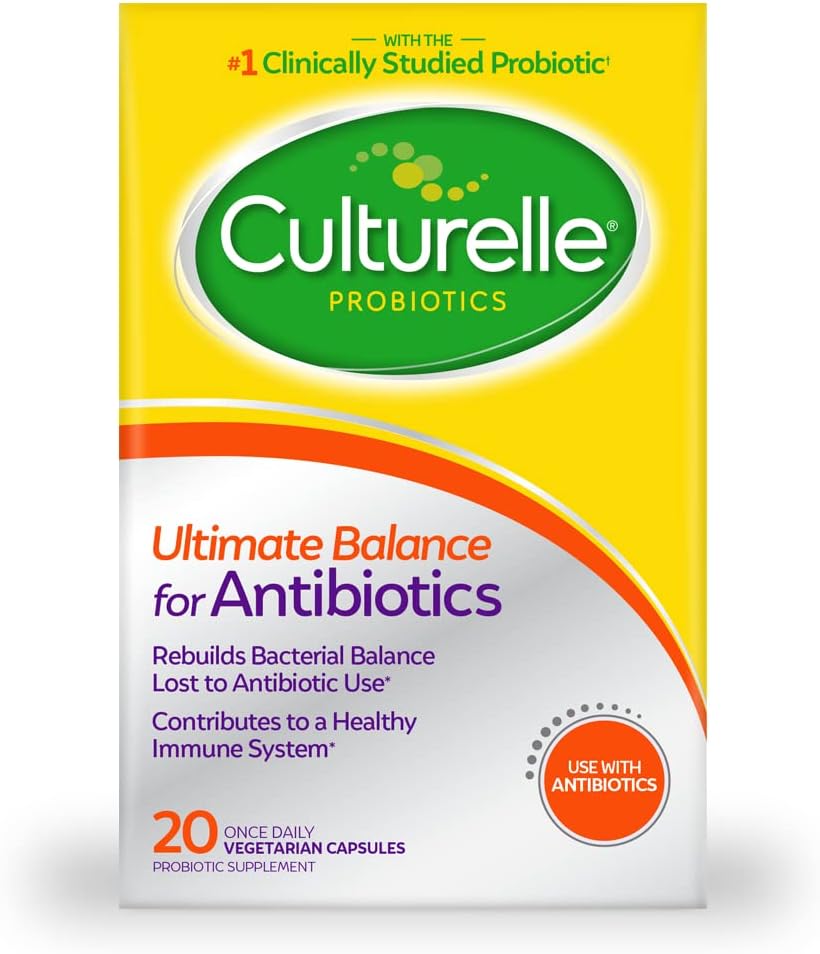







Price: $21.99
(as of Apr 10, 2025 13:31:19 UTC - Details)
What Is the Best Time to Take Probiotics? A Comprehensive Guide
Introduction
Probiotics have gained immense popularity in recent years, and for good reason. These beneficial bacteria can significantly improve gut health, boost immunity, and enhance overall well-being. However, many people often wonder, "What is the best time to take probiotics?" This question is crucial as timing can affect the efficacy of these supplements. In this article, we will explore the optimal times for taking probiotics, delve into related topics, and provide you with practical insights to maximize the benefits of these incredible microorganisms.
Understanding Probiotics
What Are Probiotics?
Before we dive into the best times for taking probiotics, let’s clarify what they are. Probiotics are live microorganisms that, when consumed in adequate amounts, offer health benefits. They are often referred to as "good bacteria" and can be found in various foods like yogurt, kefir, sauerkraut, and in supplement form.
Why Are Probiotics Important?
Probiotics play a vital role in maintaining a balanced gut microbiome. They help with digestion, nutrient absorption, and can even influence mood and mental health. An imbalance in gut bacteria can lead to various health issues, making it essential to include probiotics in your diet.
When to Take Probiotics for Maximum Effect
Morning vs. Evening: What’s the Best Time?
One of the most common questions is whether to take probiotics in the morning or at night. Research suggests that taking probiotics in the morning, on an empty stomach, may be more beneficial. This is because digestive enzymes and stomach acid levels are generally lower in the morning, allowing more probiotics to survive and reach the intestines.
Should You Take Probiotics with Food?
Another important consideration is whether to take probiotics with food or on an empty stomach. Some studies indicate that taking probiotics with a meal can enhance their absorption. The fats and fibers in food may help protect the probiotics from stomach acid. However, if you are taking probiotics that require an empty stomach for optimal effectiveness, it's best to follow the instructions on the label.
What About Specific Food Pairings?
If you're looking to enhance the effectiveness of your probiotics, consider pairing them with foods rich in prebiotics. Prebiotics are non-digestible fibers that feed probiotics, helping them thrive. Foods like bananas, asparagus, and garlic can complement your probiotic intake and support gut health.
Types of Probiotics and Their Timing
Lactobacillus vs. Bifidobacterium: Which Is Better?
Different strains of probiotics serve different purposes. Lactobacillus is often recommended for digestive health, while Bifidobacterium is beneficial for immune support. Understanding the specific strain you are taking can help determine the best time for consumption. For instance, if you are taking Lactobacillus for digestive issues, morning intake may be ideal.
Timing Based on Specific Health Goals
If you are taking probiotics for specific health concerns like bloating or constipation, timing can play a significant role. For instance, taking probiotics before a meal can help with bloating by preparing your gut for digestion. On the other hand, if you are using them to support your immune system, a consistent routine, regardless of meal times, may be more effective.
Overcoming Common Myths About Probiotics
Do Probiotics Need to Be Taken Daily?
One common myth is that probiotics need to be taken daily for them to be effective. While consistency is key, the requirement can vary depending on individual health needs. Some people may benefit from taking probiotics daily, while others may only need them occasionally.
Are All Probiotics Created Equal?
Not all probiotics are the same. Different strains offer different benefits, and the quality of the supplement can vary greatly. Look for products that contain a variety of strains and have been tested for potency and quality.
Conclusion
In conclusion, understanding the best time to take probiotics can significantly enhance their effectiveness and improve your gut health. Whether you choose to take them in the morning, with food, or at night, the key is to find a routine that works for you. Remember, consistency and quality matter when it comes to reaping the benefits of probiotics. By incorporating these beneficial bacteria into your daily life, you're taking a proactive step toward better health.
So, what is the best time to take probiotics? The answer largely depends on your personal routine and health goals. However, focusing on timing, quality, and consistency will ensure you maximize the benefits of these incredible microorganisms. Happy gut health!
RESTORE BALANCE: LGG helps restore the natural balance in your digestive tract; works naturally with your body to ease diarrhea caused by antibiotic use
PROVEN EFFECTIVE STRAIN: LGG probiotic is a proven effective and clinically studied probiotic strain that helps your digestive
EASY TO TAKE: Take 1 capsule per day; for optimal results, continued daily use is suggested for 10 days after completion of antibiotic regimen
NO REFRIGERATION REQUIRED: Every package of Culturelle Probiotics meets the highest standards for purity and potency when consumed; to preserve the billions of CFUs in your Culturelle Probiotics, store them in a cool, dry place away from sunlight
SUPPORT DIGESTIVE BALANCE: Taking antibiotics can cause Antibiotic-Associated Diarrhea (ADD); AAD can be extremely bothersome; Culturelle Ultimate Balance contains LGG, which helps with occasional diarrhea
